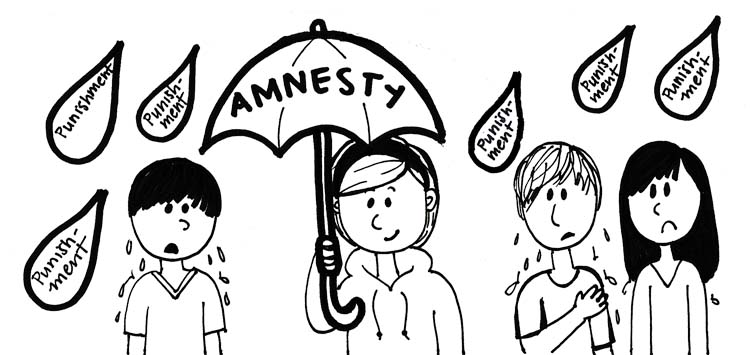The current amnesty policy at the College of William and Mary attempts to function as an umbrella that will protect individual students from excessive punishment if they call for emergency assistance after binge drinking. A recent movement by the Student Assembly has pointed out that this umbrella has several leaks, particularly where organizations are concerned. The SA would like the policy to protect not just individual people from penalty after reporting an incident, but also entire organizations. While the administration seems hesitant to endorse this approach, we believe that organizations should be rewarded for being responsible and working to ensure the safety and well-being of their members. We understand the administration’s concerns, and we want to be clear that hazing should not be tolerated on this campus; however, individual incidents beyond the organization’s control will happen, and this needs to be taken into account.
The police officers responding to the incident must be held responsible for investigating the incident and writing a thorough report. While members of organizations most likely will stick together to defend the organization, it is important that each of their voices be heard so that blame is not assigned unfairly.
As it stands, the current amnesty policy is not fair toward organizations reporting an incident. The actions taken against organizations for a single incident should be equivalent to those taken against individuals who fall under the medical amnesty policy. They should be required to complete the alcohol education courses and to form a plan to prevent such incidents in the future, but the current plan is much harsher and frequently results in a probation sentence for the organization. This policy does not encourage members to report incidents, and the punishment is extended to all members, many of whom may not have been involved.
The recent actions taken against fraternities at the College are prime examples of how excessive this punishment can be. In the case of Kappa Sigma, members of the fraternity did call for help, which resulted in the fraternity losing its housing, and all members were put on social probation for a semester. There is no excuse for the incident; however, it is fortunate that there was no lasting damage because someone acted responsibly.
All organizations on this campus, be they Greek, athletic, service-oriented or academic, should take the safety of their members and guests seriously. To ensure total accountability, records must be kept, not just for a year, but throughout the collegiate career of each student to keep track of repeat incidents and to identify potential problems. The incident report must remain on the students’s college records, and on the records of organizations, in order to ensure that the College is able to hold all students accountable. Both students and organizations deserve the opportunity to explain their record, but erasing the incident from the record does not mean that it did not happen.
At the end of the day, each of these organizations is a group of individuals who would otherwise be covered by the amnesty policy. The problem is a simple matter of assigning organizations the same rights as the individual members.

